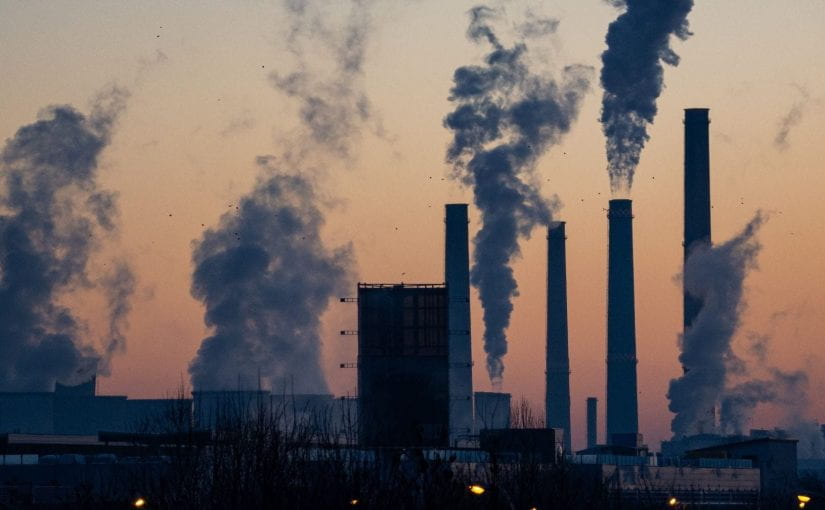Climate change has been at the heart of developmental debates since almost three decades. From the Rio Summit of 1992 to the Paris Agreement of 2018, governments around the world have made commitments to mitigate the impact of global warming. Many businesses and individuals have also taken upon themselves to minimise their negative impact on the environment. The rapid degradation of environment and natural resources has made the world question conventional notions of economic growth and sparked a debate on the trade-offs between economic growth and environmental sustainability.
Over the last three decades, many intergovernmental and international committees have been established to find solutions to climate change. Various policies, from carbon taxes and pollution control standards to renewable energy promotion, have been adopted by countries. Innovative solutions in diverse areas like green buildings, plant-based meats and cleaner transportation have come up.
However, despite the billions of dollars flowing into environmental conservation efforts, we haven’t yet been able to strike the nail on the head when it comes to addressing the actual causes of climate change. This is partly due to a lack of resources but largely because of the lack of political will to scale these innovations and adopt difficult measures that have short-term costs but long-term benefits regarding environmental sustainability.
A few hard questions thus arise: Can finance really help to solve the issue of climate change? Why have existing financial instruments been only partly successful in mitigation efforts? Are investments not being properly channelised? Why is political will lacking to take the plunge towards long-term sustainability?
Social investing has become increasingly popular in the last few decades. The Millennium Development Goals (MDGs) and Sustainable Development Goals (SDGs) spearheaded by the UN have steered investors towards making socially and environmentally conscious investments. Investors are increasingly investing in businesses that have a positive social and environmental impact. The Global Impact Investing Network (GIIN) has estimated the size of social investments to be USD 715 billion as of 2020, a whopping 42% increase over last year and a result of the increased global focus on sustainability in the context of COVID-19. A big part of the climate finance is in the form of ESG investments, with over 68% of impact investors looking to invest in companies that have a clear ESG mandate.
To delve deeper into the issues of effectiveness of financial instruments for addressing climate change, on 26ᵗʰ August, SIG organised a webinar with Professor Benjamin Cashore, Li Ka Shing Professor in Public Management at the Lee Kuan Yew School of Public Policy. Prof. Cashore characterises the climate crisis as a “super wicked problem” — one that is time-critical, with no central authority to manage it, and one where the actors seeking to end it are also causing it.
According to Prof. Cashore, path-dependency models are more suited to analyse and provide solutions for super wicked problems, rather than a cost-benefit analysis models. He said we need “easy to pull policy lever that are hard to reverse”. Financial and market development initiatives, according to him, can only be a part of a larger policy mix and cannot work in isolation. He put forward three diagnostic questions that needed to be answered to solve the larger issues:
- What can be done to create ‘immediate lock-in’?
- What can be done to entrench support over time?
- What can be done to expand populations covered?
According to the professor, an excellent example of policy shaping the market and individual behaviour is the success of renewable energy adoption, especially solar energy, in Germany. The government devised a feed-in-tariff (FiT) program to encourage households to install solar panels on their roofs. Owing to financial incentives and regulatory provisions, the cost of solar panels has reduced substantially within just a few years.
Here’s the recording of the event where you can learn more about the path dependency approach and how constraining future choices today can ensure environmental sustainability:
We are at crossroads today: the COVID-19 pandemic has forced governments worldwide to formulate reactive policies that hope to return countries to fast–track economic growth at the earliest. For instance, global CO₂ emissions from fossil fuel consumption and cement production decreased by 1.4% in the initial period of the Global Financial Crisis of 2008, only to rise by 5.9% in 2010. In case of COVID-19, the effect of economic rebound on the environment may be far worse. Policymakers need to be mindful of the long-term effects of economic recovery policies on the environment.
Investments in sustainability and ESG funds has reached record level, exceeding $1 trillion, even as the pandemic unfolds. COVID-19 has increased the investors’ interest in stakeholder capitalism and issues of sustainability. Social investing has proven to be a very useful tool to attract investments to advance social causes like gender equality but has had limited success, if at all, on environmental issues. COVID-19 is a great opportunity for policymakers to tap into the global enthusiasm and awareness about sustainability and take hard policy measures that have a long-term focus rather than aid short-term economic recovery. What we make of this trend today, and how, could be a turning point in how impactful social investing will be for halting and reversing climate change.
